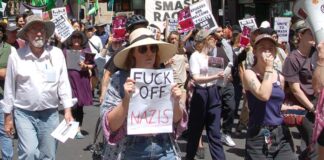The economic crisis in Europe has become a political crisis after the architects of austerity in Greece were utterly smashed at the polls in the May 6 election.
The two parties that presided over the biggest cut to living standards since the Great Depression, and who supported the “technocratic” coalition government headed by Lucas Papademos and imposed by the “troika” of the International Monetary Fund (IMF), the European Central Bank (ECB) and the European Union (EU), were decisively punished.
PASOK, the Labor-type party, won 13 per cent of the vote, (down 30.7 per cent), and conservative New Democracy 18.8 per cent (down 14.6 per cent). The beneficiaries were the left party SYRIZA, whose vote tripled to nearly 17 per cent, and a host of other anti-austerity parties. The vote to the left totalled 33 per cent.
Even though the Greek electoral system awards 50 bonus seats to the party who comes first, a coalition of both PASOK and New Democracy fell just short of the 150 seats required to form government.
Thankfully, SYRIZA has rejected the formation of a coalition with the austerity parties. Leader Alexis Tsipras explained, “It is as if the message of last Sunday’s election has not been heard… We will not participate in a government that will enforce the policies of [austerity].”
No ruling coalition has emerged, which means Greece will go to the polls again in mid-June. All signs point to SYRIZA’s vote increasingly again, some polls suggesting over 25 per cent.

High stakes
Not since 1958, when the left polled 25 per cent, have elections in Greece shaken the political order so much. That ended with the 1967 military coup.
Again, the stakes are high. One economist writing for Forbes magazine even went so far as to say, “The brute fact is that Greece has not succeeded in demonstrating that it can and should exist as a sovereign political entity.”
The ruling class in Europe is in overdrive, warning Greek political leaders that they must commit to further austerity.
But the measures have created a downward spiral with no end in sight. The latest bailout package in February only increased the debt, while the accompanying austerity measures have continued to depress the economy and lower the tax take, making the paying back of the debt even less likely.
Over 1.5 million people are unemployed, while, as Greek socialist Panos Garganos has explained, “Wages have been cut by 22 percent, pensions by 15 to 25 percent, and there has been a whole wave of destruction in social services, in terms of access to hospitals, doctors and childcare. For working class families survival is a real, real struggle.”
Nevertheless, European leaders are hell bent on the strategy of making working people pay. Now, however, the Greek election has put a question mark over their ability to do that.
Radicalisation
What worries the “trioka” and the European ruling class the most is that behind the amazing electoral shake-up is a radicalisation amongst the Greek working class. There have been 17 general strikes since the 2009 election.
As Greek socialist Panos Garganas has explained, “Activists at the heart of the electoral swing to the left are fighters experienced in strikes, occupations and strong demonstrations confronting police violence.”
The strikes have been pushed from below and the resistance has deepened at a local, rank-and-file level. Steel workers have been on strike for nearly six months. Media workers have taken over the newspaper Eleftherotypia and workers in a hospital in Kilkis, in Northern Greece, have threatened to take over their hospital if it is closed.
Their resistance has begun to pose an alternative to the crisis of the capitalist system and the strength of it will ultimately determine who is made to pay for the crisis.
Already, there is significant pressure on SYRIZA to reiterate its commitment to the Eurozone at all costs, which will only intensify if their vote rises at the next poll. There will be immense pressure on them to weaken their opposition to austerity or risk expulsion from the Eurozone, something SYRIZA’s pro-EU leaders are scared of.
The anti-capitalist left’s demand for a cancellation of the debt and the nationalisation of the banks under workers’ control will only become more important.
Another major concern is the rise of the fascist Nazi party Golden Dawn, who won 7 per cent of the vote. They posed as anti-austerity and were boosted by the anti-immigrant rhetoric of PASOK and New Democracy. They want to expel all immigrants from Greece and talk of putting land mines on the Greek border to stop immigration. It is an extremely dangerous development. One thing is certain—what happens in Greece will be critical for the battle across Europe.
Ernest Price and Amy Thomas





